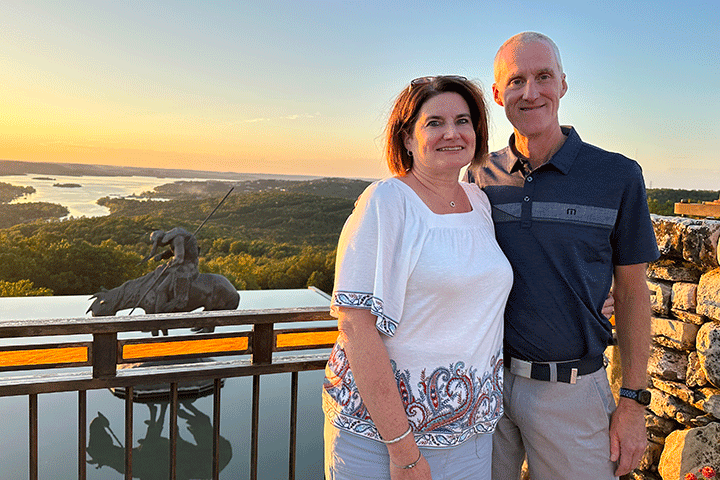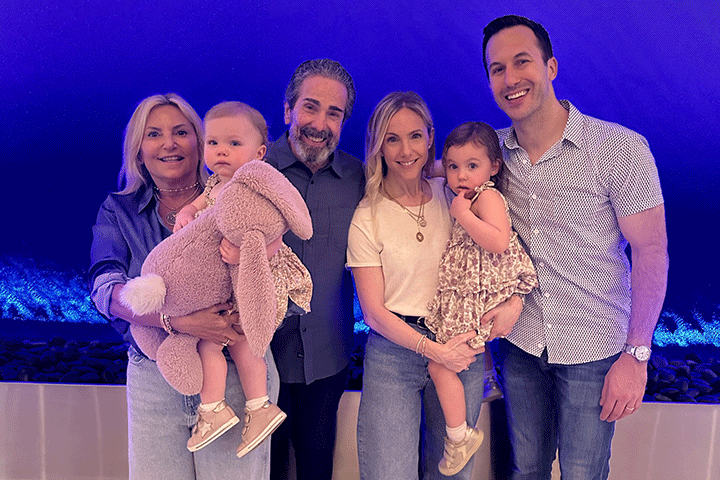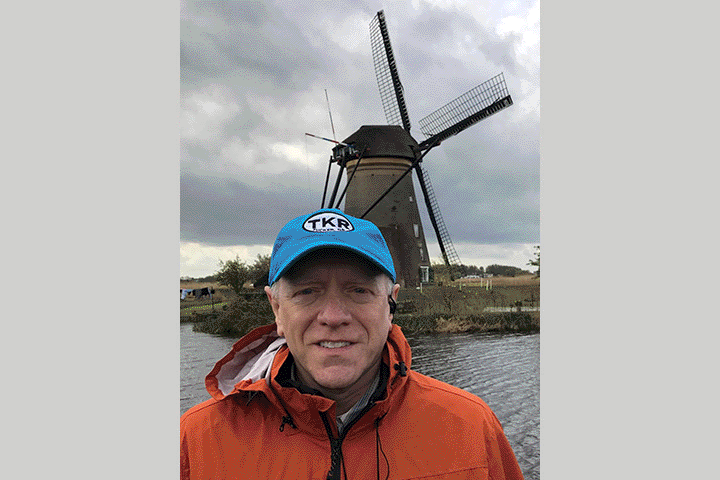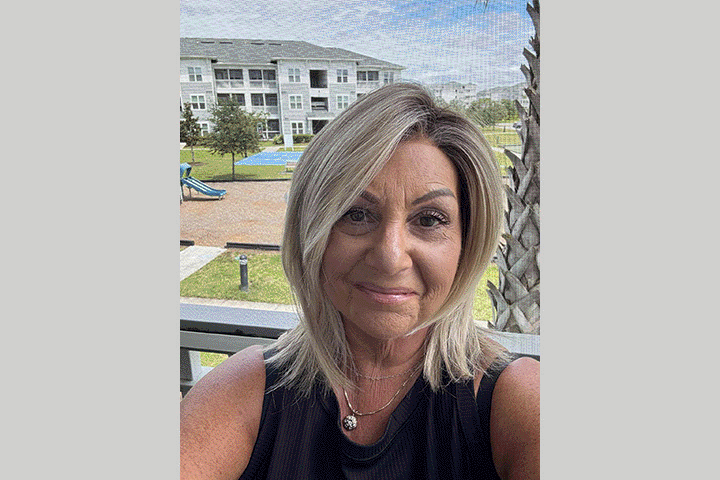A Second Opinion Was a Game Changer

- Pancreatic cancer runs in the family
- Repeatedly misdiagnosed with acid reflux
- Switching hospitals led to more aggressive treatment
I was first introduced to pancreatic cancer in 2016 when my older sister Jenelle was diagnosed.
She had been misdiagnosed with other things several times, so by the time they figured it out, the cancer had spread, and it was too late for her. She died three weeks after her diagnosis.
Acid Reflux? Or Something More . . .
In late 2018 I started to have stomach and back pain and was losing weight. I was commuting between Carmel, Indiana, and Boston, Massachusetts, for work every week. My role and the travel were pretty stressful. I thought I might have an ulcer. By the end of December things got worse, and I went to the doctor. I was diagnosed with acid reflux. I was given medicine for two weeks, but it did not work. They tried a different medicine for two more weeks, but it still did not help. Before I went back for the third time, my wife said, “Tell them you want blood work and a scan.” I did, though the doctors pushed back saying they knew it was acid reflux, so I would be wasting my money. I persisted, and the scan showed a four-centimeter mass on my pancreas.
I was officially diagnosed with stage III pancreatic cancer on February 1, 2019, at the age of 53.
Treatment: Round One
I met with doctors at a local hospital in Indianapolis and was told that while the cancer didn’t appear to have spread, the tumor was wrapped around my mesenteric artery so it could not be surgically removed at the time. I started chemotherapy (FOLFIRINOX) with hopes of shrinking the tumor. I had eight chemotherapy treatments on a two-week interval and was able to handle it fairly well. One thing that seemed to help was acupuncture. I went for an acupuncture session the day before each treatment, and it helped.

I had genomic testing of my tumor and while the results were inconclusive, the testing indicated that my tumor was “MSI-High.” This meant that I was potentially eligible for immunotherapy. More testing was needed, and there were several insurance hurdles to get it approved. Immunotherapy was very expensive and it was unclear whether it would be approved.
Treatment: Round Two
About midway through my treatment a friend of mine made an introduction to the doctors at Dana-Farber Cancer Institute in Boston, Massachusetts. We went to Dana-Farber for a second opinion and were blown away by the people we met there. They were far more aggressive about surgery and were also confident that they could get the immunotherapy approved. So, after my chemo was completed, I transferred to Dana-Farber, and we moved back to Boston for further treatment. My team at Dana-Farber included oncologist Dr. Brian Wolpin and surgeon Dr. Thomas Clancy.
I had a week of radiation, two doses of immunotherapy with pembrolizumab (Keytruda), and then had the Whipple procedure on July 23, 2019. The surgery was a success. In fact, the biopsy of my tumor showed that the cancer cells were dead. It was deemed a pathologic complete response (pCR). Immunotherapy was truly a “game changer” in my treatment.
Recovery
I was in the hospital for six days after my surgery and then spent six weeks recovering at home until I could resume some activities. I did a lot of walking those first six weeks, and that helped with the recovery process.
Overall, recovery was slow and difficult at times, though I am now back to doing almost all of the things I was doing before my diagnosis. I was an active runner and triathlete before my diagnosis, and while I have slowed down, I have been able to resume running, biking, and swimming. I have completed eight half-marathons since my surgery!
I have been free from all signs of cancer since my surgery. This year I am celebrating a number of milestones: the six-year anniversary of my diagnosis and surgery, my 60th birthday, and the birth of my first grandchild. When I was first diagnosed, it would have been impossible to imagine reaching any of these milestones.
I Wasn’t Alone
One of the things that you learn when fighting something like cancer is that you are not alone. I was supported by so many incredible people through this journey—medical professionals, friends, family, co-workers, etc. My team at Dana-Farber was amazing, and there were many others who helped me along the way.
My family, friends, and co-workers were with me every step of the way and did everything they could to help us when we needed it most. Most importantly, my wife Colleen was my rock during this whole process. She was at every appointment taking notes, asking questions, and making sure my treatment stayed on track. She also made sure I stayed healthy and encouraged me to stay positive throughout this fight. I can’t imagine a better caregiver.
Giving Back
Since my treatment, my wife and I have tried to give back to the pancreatic cancer community by volunteering with the Pancreatic Cancer Action Network (PanCAN). We served as the PurpleStride co-chairs in Indianapolis for three years and also helped with survivor and mission efforts. While working with this group we have met some wonderful people—survivors, caregivers, people who lost loved ones, researchers, etc. While this is not a journey we would wish on others, we are grateful for the people we have met and the perspective we have gained along the way.
My big lessons from my cancer journey:
- Cancer comes with the gift of perspective, and one of the challenges for a survivor is to keep it. Sometimes that’s not easy, though whenever I go in for a checkup or meet with fellow patients/survivors, I consider that to be another “dose of perspective.”
- When it comes to treatment, you must advocate for yourself. Doctors are great, but there are times when you must push for what you need. I would not be here today if my wife had not pushed for additional testing six years ago.
- Stay positive. This is easier said than done, though a positive and hopeful attitude helps you fight cancer better.




